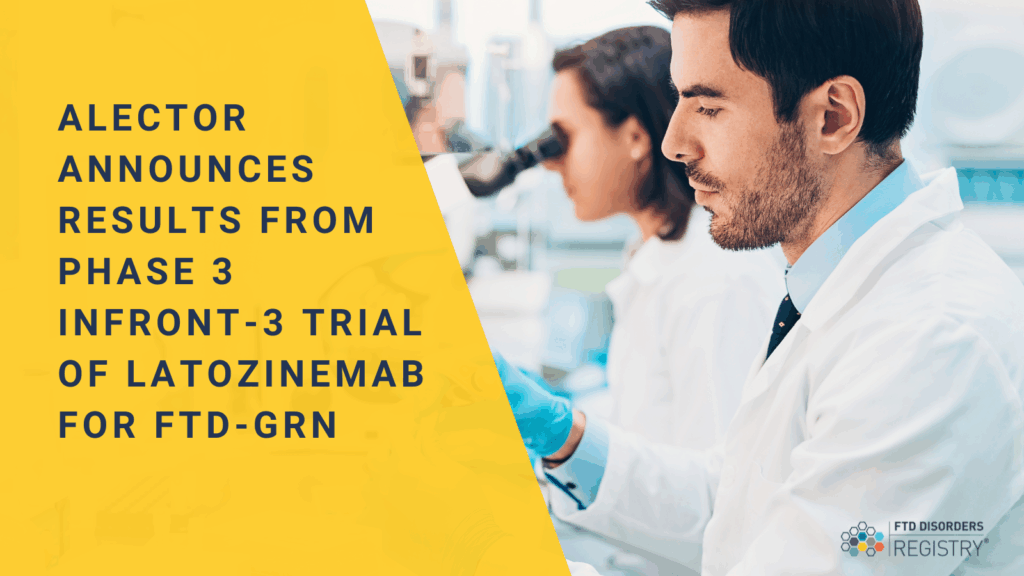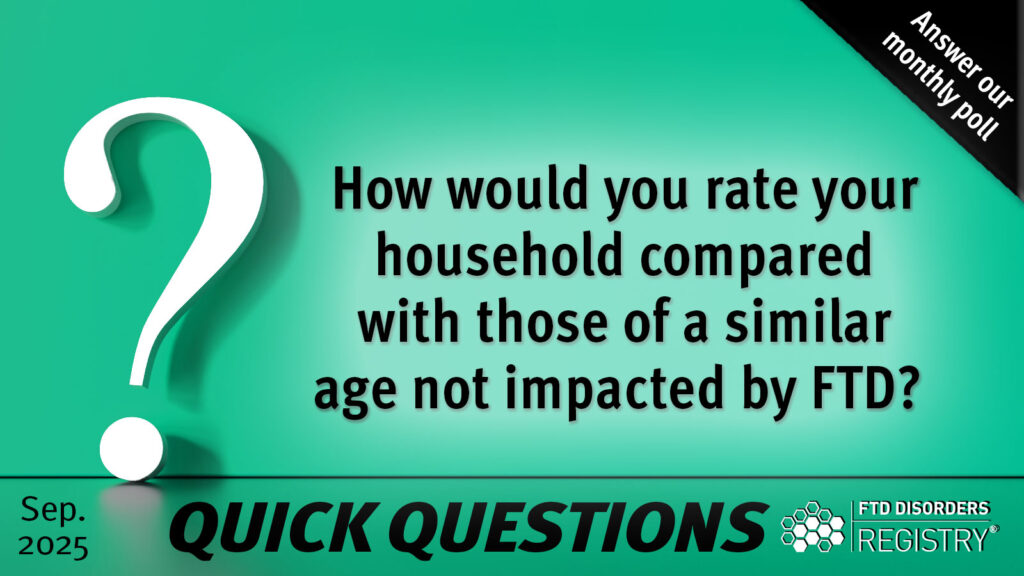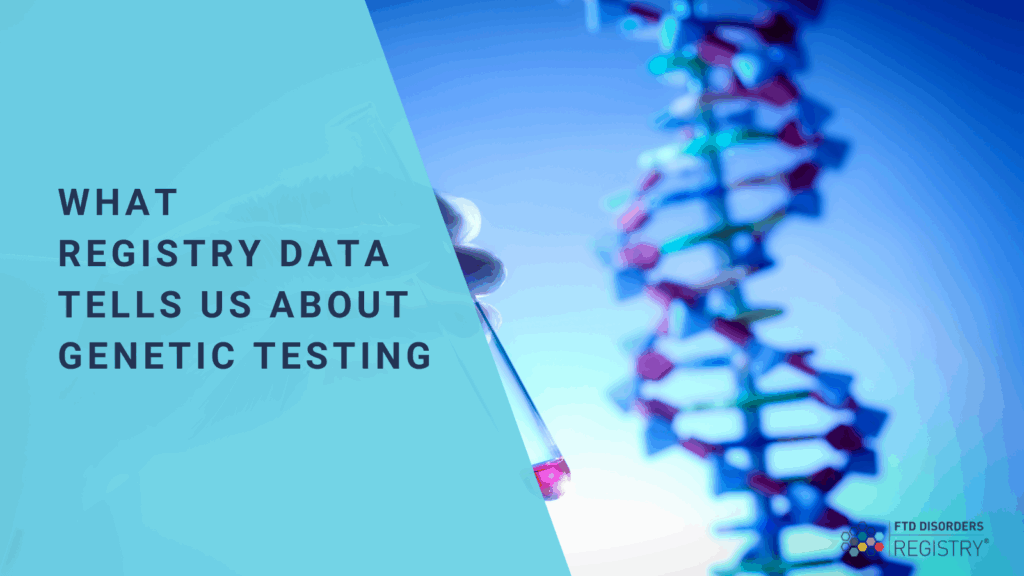NUMBERS HAVE POWER.
JOIN THE REGISTRY.
ADVANCE THE SCIENCE.
Together we can find a cure for ftd
The FTD Disorders Registry is a powerful tool in the movement to create therapies and find a cure. Together we can help change the course of the disease and put an end to FTD.
Your privacy is important! We promise to protect it. We will not share your contact information.
The Registry is an online database that collects information from those affected by all types of frontotemporal degeneration (FTD):
Persons diagnosed, current and former caregivers, family, and friends can join. As a member of the Registry, you can help us advance the science and move faster toward finding treatments and cures. The first step is simple:
NUMBERS HAVE POWER.
JOIN THE REGISTRY.
ADVANCE THE SCIENCE.
NUMBERS HAVE POWER.
JOIN THE REGISTRY.
ADVANCE THE SCIENCE.
Together we can find a cure for ftd
The FTD Disorders Registry is a powerful tool in the movement to create therapies and find a cure. Together we can help change the course of the disease and put an end to FTD.
Your privacy is important! We promise to protect it. We will not share your contact information.
The Registry is an online database that collects information from those affected by all types of frontotemporal degeneration (FTD):
Persons diagnosed, current and former caregivers, family, and friends can join. As a member of the Registry, you can help us advance the science and move faster toward finding treatments and cures. The first step is simple:
AND NOW WE WORK TOGETHER >
Will you join the community working to end FTD?
UPDATES
What the Registry Community Is Most Interested In
Registry data reveal which FTD subtypes and genes have the highest representation of research-ready participants, helping scientists design stronger, more focused studies.
Alector Announces Results from Phase 3 INFRONT-3 Trial of Latozinemab for FTD-GRN
Alector has announced topline results from its Phase 3 INFRONT-3 trial of latozinemab for FTD-GRN.
Quick Question September 2025 Result:
Life with FTD is about so much more than medical symptoms. To better understand the impact of FTD disorders, our September Quick Question asked …
What Registry Data Tells Us About Genetic Testing
Only a fraction of people with FTD and their relatives pursue genetic testing. This World FTD Awareness Week, discover how genetic counseling can guide the way.
How Caregiver Burden Affects Research Participation
Caring for a loved one with FTD can make research participation feel impossible. Learn more about the barriers caregivers face and how researchers can make studies more accessible.
- « Previous
- 1
- 2
- 3
- 4
- Next »
What the Registry Community Is Most Interested In
Registry data reveal which FTD subtypes and genes have the highest representation of research-ready participants, helping scientists design stronger, more focused studies.
THE FTD REGISTRY IS A PARTNERSHIP OF:
















